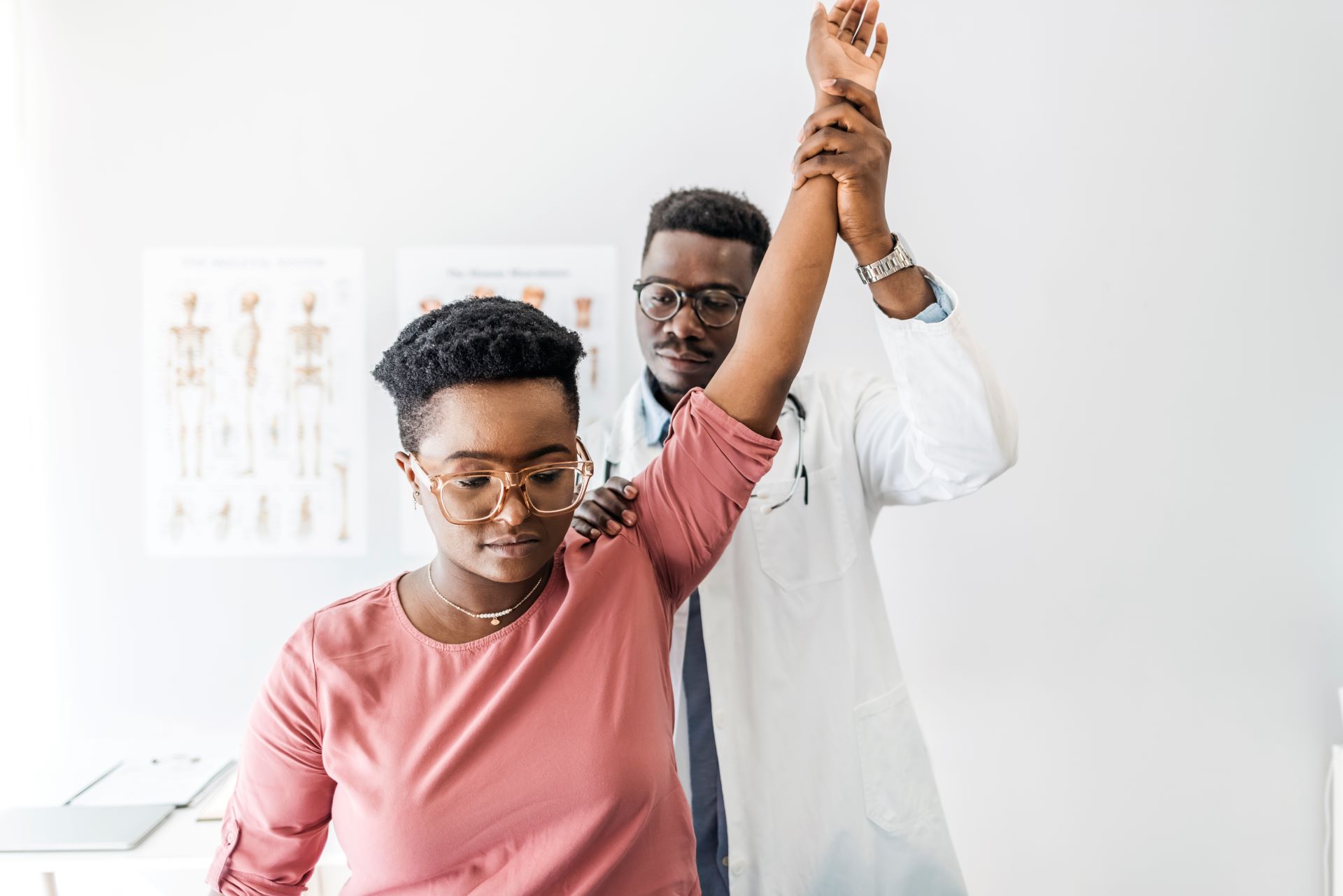Your Questions — 5 minutes
Which infiltration for which pain?
Musculoskeletal health is of crucial importance, whether for athletes or the health-conscious. However, when a musculoskeletal injury or disorder occurs, infiltration may be indicated. We examine the types of infiltrations.

What is infiltration?
Infiltration involves injecting a product into joints, bursae, tendons or ligaments to relieve pain, reduce inflammation and promote healing. There are three main infiltration products: cortisone, viscosupplements and platelet-rich plasma.

Cortisone infiltration
Cortisone is a powerful anti-inflammatory drug used to rapidly alleviate the pain associated with acute inflammatory crises such as osteoarthritis, tendinopathy and ligament injuries.
Cortisone is injected into the area to be treated, ideally under ultrasound or fluoroscopy guidance to ensure precision. Infiltration causes few side effects. The injected limb should then be rested for 7 to 14 days, depending on the case.
The effects are generally felt 24 to 48 hours after the injection. Although the product is eliminated from the body after four to six weeks, relief can last three months or more. Treatment should be limited to three infiltrations per year, per injection site, as too frequent injections can weaken the tendons and ligaments.
Viscosupplementation
Viscosupplementation involves the injection of hyaluronic acid, a substance found in joints. It is mainly used to slow the breakdown of cartilage caused by osteoarthritis, but can also help heal certain tendon and ligament injuries.
The viscosupplement is injected into the area to be treated, ideally under ultrasound or fluoroscopy guidance to ensure precision. For a tendon or ligament, one or two infiltrations may be necessary. A rest period of 7 to 14 days is recommended, depending on the case. The injection may sometimes cause local pain and slight swelling for 24 to 48 hours, which can be relieved by applying ice or taking acetaminophen.
The effects of the product can be felt after a few days, or even weeks, and last several months. It may be necessary to repeat the infiltration once a year. For tendon and ligament injuries, one or two infiltrations are generally sufficient.
Platelet-rich plasma infiltration
Platelet-rich plasma (PRP) is a sample of your own blood that is centrifuged to increase the concentration of platelets in the plasma. Because platelets contain bioproteins essential to the healing process, PRP promotes tissue repair and alleviates pain. It is generally prescribed to treat osteoarthritis, tendonitis and ligament sprains.
A blood sample is collected and centrifuged to extract platelet-rich plasma. The PRP is injected into the area to be treated, ideally under ultrasound or fluoroscopy guidance to ensure precision. A rest period of a few days is then recommended after infiltration into a joint, and a week for injection into a tendon or ligament. However, the resumption of sporting activities is generally only possible six weeks after injection. As PRP comes from your own blood, there are very few side effects or risks of infection and bleeding.
Beneficial effects may take a few weeks or months, but appear more rapidly after an intra-articular injection. The healing of tendon or ligament damage may require a second infiltration. For osteoarthritis, which does not heal, PRP injections can be repeated when pain recurs, usually once a year.
Prevention is better than infiltration
Musculoskeletal infiltrations have been shown to be effective in relieving pain and promoting healing. However, they can never replace good preventive measures. By incorporating strength training for certain muscle groups and stretching into your weekly routine, you can enjoy life to the fullest while preserving your musculoskeletal health.
For professional support, we’re here.
We offer services that can help your doctor diagnose musculoskeletal disorders and determine the right treatment.
Do you have a medical prescription for an infiltration? Book an online appointment or contact Biron Health Group Customer Service at1 833 590-2714.


